Filter by
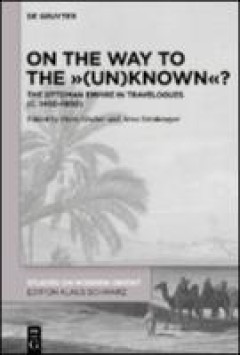
On the Way to the (Un)Known?: The Ottoman Empire in Travelogues (c. 1450-1900)
Twenty-two authors from various countries analyze travelogues on the Ottoman Empire between the fifteenth and the nineteenth centuries. The volume discusses questions of perceptions of "otherness", the circulation of knowledge, intermedial relations, gender roles, and explores possibilities and limits of digital analysis.
- Edition
- Ed. 1
- ISBN/ISSN
- 9783110698046, 9783110697605
- Collation
- 420
- Series Title
- Studies on Modern Orient, 36
- Call Number
- 297 ONT o
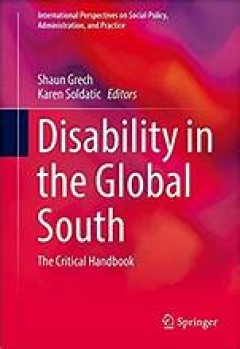
Disability in the Global South
This first-of-its kind volume spans the breadth of disability research and practice specifically focusing on the global South. Established and emerging scholars alongside advocates adopt a critical and interdisciplinary stance to probe, challenge and shift common held social understandings of disability in established discourses, epistemologies and practices, including those in prominent areas …
- Edition
- 1
- ISBN/ISSN
- 978-3-319-42488-0
- Collation
- Sosial Ekonomi
- Series Title
- -
- Call Number
- 261
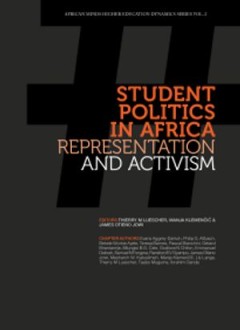
Student Politics in Africa : Representation and Activism
The second volume of the African Higher Education Dynamics Series brings together the research of an international network of higher education scholars with interest in higher education and student politics in Africa. Most authors are early career academics who teach and conduct research in universities across the continent, and who came together for a research project and related workshops and…
- Edition
- -
- ISBN/ISSN
- 9781928331223
- Collation
- 280 halaman
- Series Title
- -
- Call Number
- 370 STU
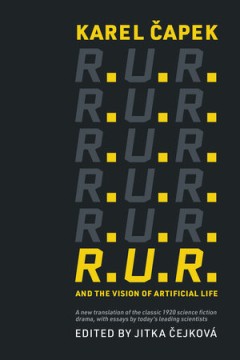
R.U.R. and the Vision of Artificial Life
R.U.R. and the Vision of Artificial Life offers a new, highly faithful translation by Štěpán Šimek of Czech novelist, playwright, and critic Karel Čapek's play R.U.R.: Rossum's Universal Robots, as well as twenty essays from contemporary writers on the 1920 play. R.U.R. is perhaps best known for first coining the term “robot” (in Czech, robota means serfdom or arduous drudgery). The tw…
- Edition
- -
- ISBN/ISSN
- 9780262371902
- Collation
- -
- Series Title
- -
- Call Number
- 303 CAP r
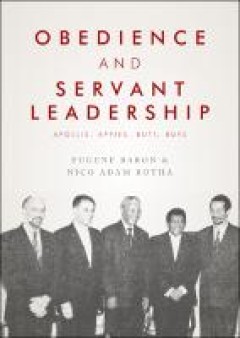
Obedience and Servant Leadership: Apollis, Appies, Buti, Buys
In celebrating a quarter of a century of the Uniting Reformed Church in Southern Africa (URSCA) (1994 2019), quite a few well-organised activities and events took place. These activities reflect a mix of serious academic seminars and liturgical celebrations of which the ones in the Cape, both in Belhar and at the University of the Western Cape (UWC) warrant special mention. In his sermon based …
- Edition
- Ed. 1
- ISBN/ISSN
- 9781928424772, 9781928424765
- Collation
- 284
- Series Title
- -
- Call Number
- 221 OBE o
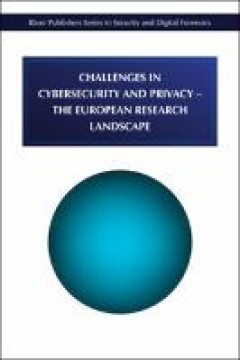
Challenges in Cybersecurity and Privacy - the European Research Landscape
Cybersecurity and Privacy issues are becoming an important barrier for a trusted and dependable global digital society development. Cyber-criminals are continuously shifting their cyber-attacks specially against cyber-physical systems and IoT, since they present additional vulnerabilities due to their constrained capabilities, their unattended nature and the usage of potential untrustworthiness…
- Edition
- Ed. 1
- ISBN/ISSN
- 9781000795509, 9788770220880
- Collation
- 250
- Series Title
- -
- Call Number
- 005.8 CHA c
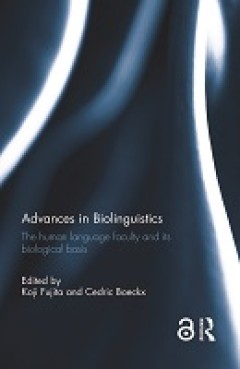
Advances in Biolinguistics: The Human Language Faculty and Its Biological Basis
Biolinguistics is a highly interdisciplinary field that seeks the rapprochement between linguistics and biology. Linking theoretical linguistics, theoretical biology, genetics, neuroscience and cognitive psychology, this book offers a collection of chapters situating the enterprise conceptually, highlighting both the promises and challenges of the field, and chapters focusing on the challenges …
- Edition
- -
- ISBN/ISSN
- 9781138891722
- Collation
- -
- Series Title
- -
- Call Number
- -
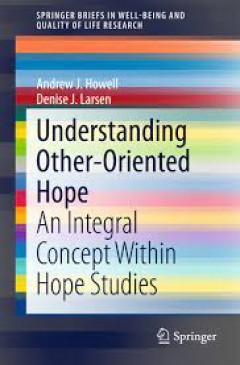
Understanding Other-Oriented Hope An Integral Concept Within Hope Studies
This Brief integrates the literature and research on other-oriented hope. It discusses the position of other-oriented hope as one manifestation of the broader attribute of other-interest and argues the importance of other-interest in well-being. The Brief examines definitions and attributes of other-oriented hope, based upon theoretical and empirical understandings of hope more generally. There…
- Edition
- -
- ISBN/ISSN
- 978-3-319-15007-9
- Collation
- -
- Series Title
- -
- Call Number
- -
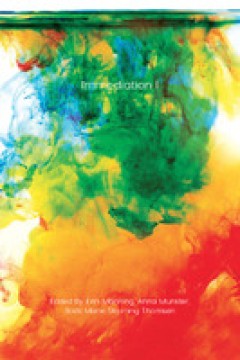
Immediation I
All “media-tion” stages and distributes real, embodied – that is, immediate, events. The concept of immediation entails that cultural, technical, aesthetic objects, subjects, and events can no longer be abstracted from the ways in which they contribute to and are changed by broader ecologies. Immediation I and II seek to engage the entwined questions of relation, event and ecology from ou…
- Edition
- -
- ISBN/ISSN
- 9781785420610
- Collation
- -
- Series Title
- -
- Call Number
- -
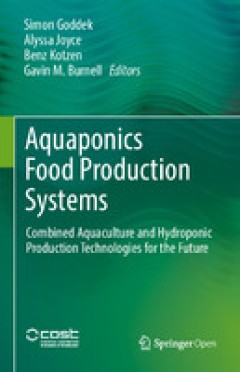
Aquaponics Food Production Systems
This open access book, written by world experts in aquaponics and related technologies, provides the authoritative and comprehensive overview of the key aquaculture and hydroponic and other integrated systems, socio-economic and environmental aspects. Aquaponic systems, which combine aquaculture and vegetable food production offer alternative technology solutions for a world that is increasingl…
- Edition
- -
- ISBN/ISSN
- -
- Collation
- -
- Series Title
- -
- Call Number
- -
 Computer Science, Information & General Works
Computer Science, Information & General Works  Philosophy & Psychology
Philosophy & Psychology  Religion
Religion  Social Sciences
Social Sciences  Language
Language  Pure Science
Pure Science  Applied Sciences
Applied Sciences  Art & Recreation
Art & Recreation  Literature
Literature  History & Geography
History & Geography